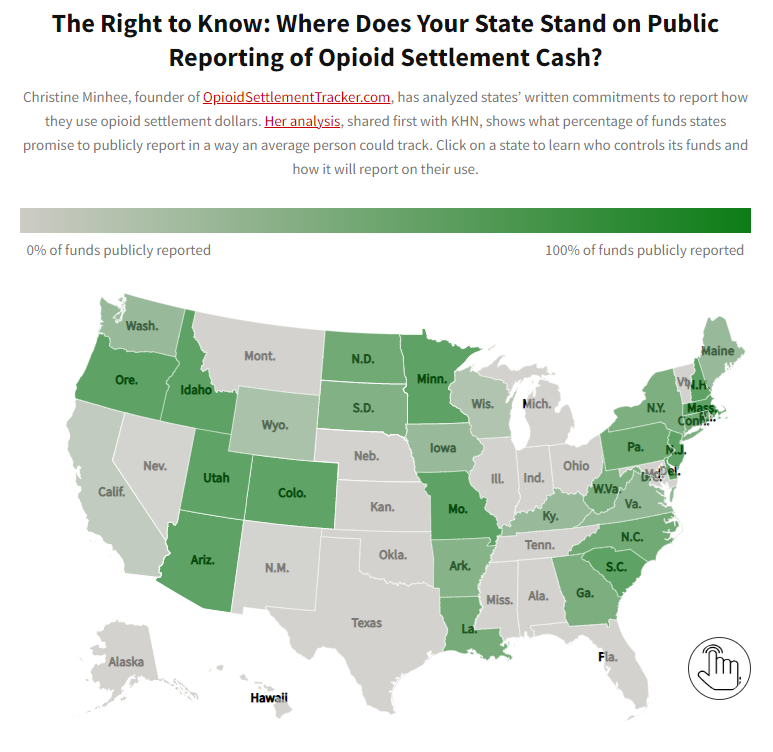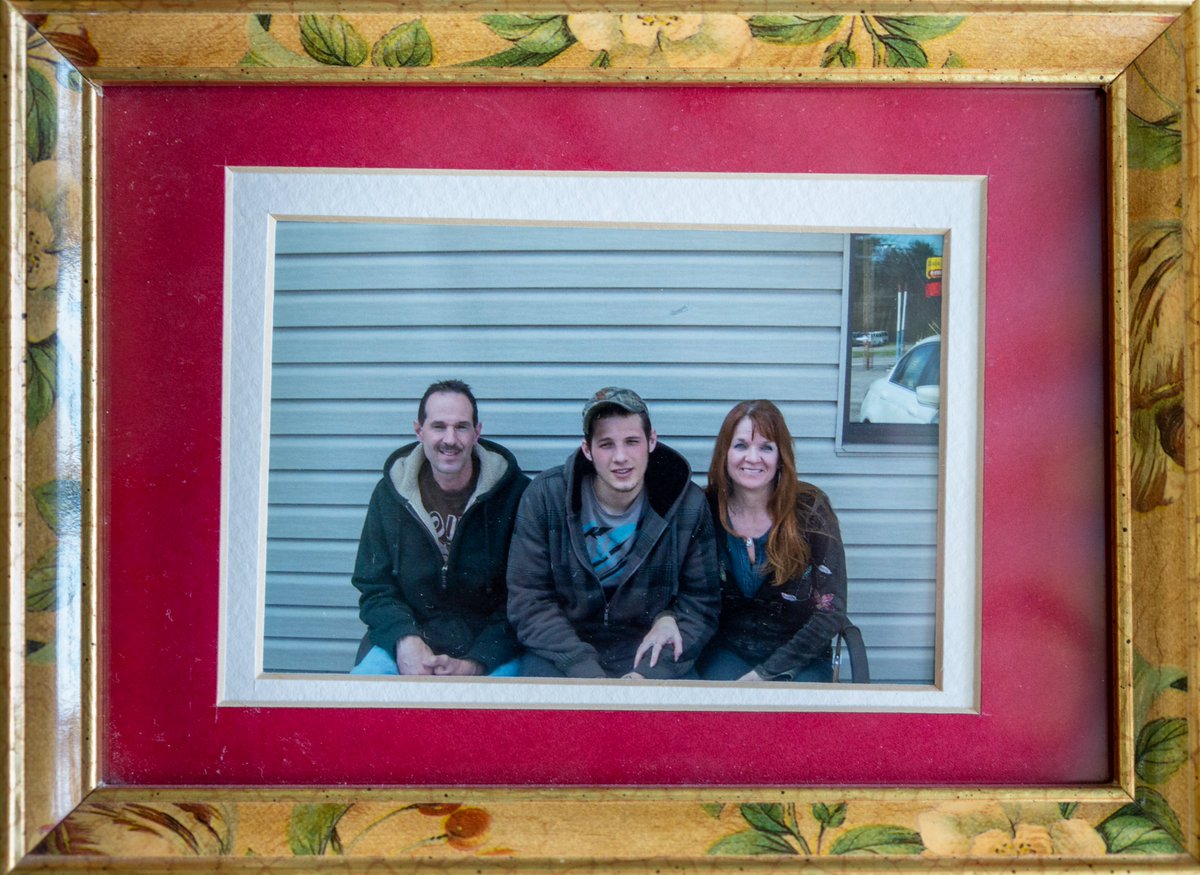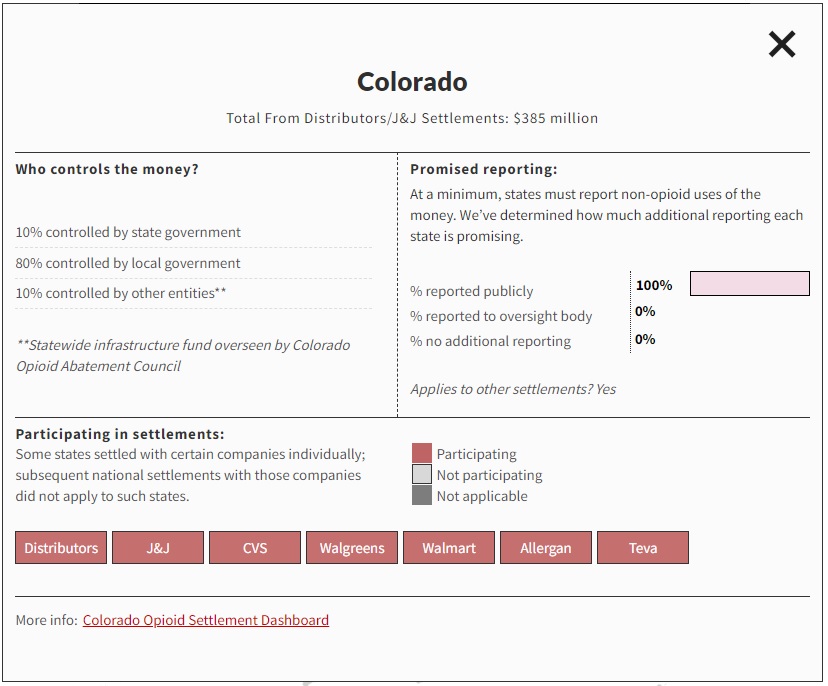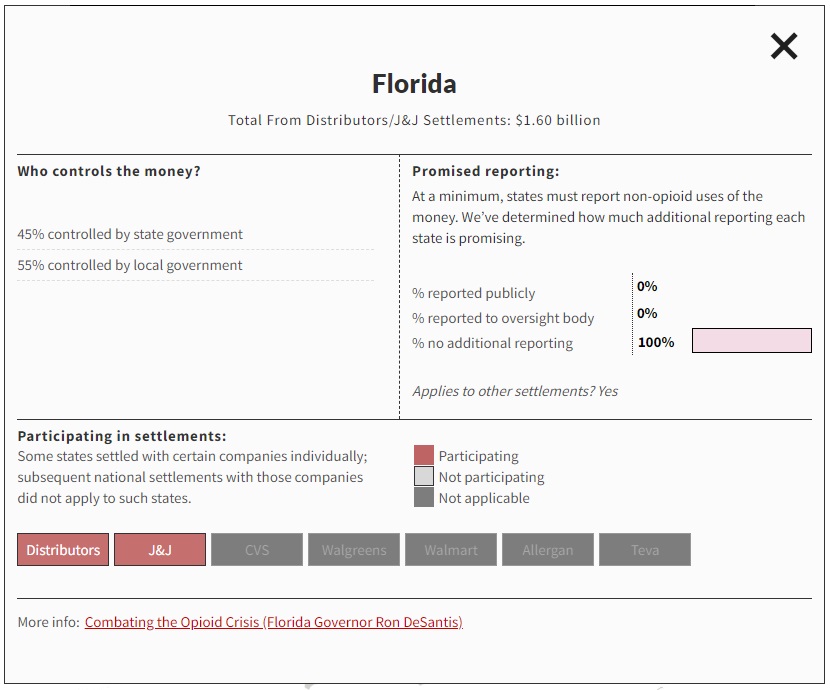🧵State & local govts are receiving $50B from companies accused of fueling the #opioidcrisis. But how much will they publicly report on its use? Will people in recovery, families & others know how it’s spent? My @khnews investigation with Christine Minhee. khn.org/news/article/o…
2/ We scoured thousands of public documents and found only 12 states have promised detailed, public reporting of all their settlement money. That means in most places, it’ll be hard to track where this money goes. (Static pic, click link to see live map) khn.org/news/article/o… 



3/ Why does this matter? Opioid settlement funds come from lawsuits against companies like Johnson & Johnson, McKesson, CVS, etc for aggressively promoting/distributing painkillers that addicted or killed millions. Families say they deserve to know how this "blood money" is spent
4/ Marianne Sinisi lost her son Shawn, 26, to overdose. She wants the💲to help spare other parents that grief. But she says elected officials treat her questions like an inconvenience. “Here we are victims yet again, fighting to make sure the right thing is done with that money.” 

5/ The only requirement in the settlements is for governments to report how much money they use on non-opioid items, like fixing roads. That can be at most 15% of their💰 (so not the majority). And those reports are often so vague as to be useless. See: nationalopioidofficialsettlement.com/Home/StateTerr… 





6/ States can add stricter reporting protocols that apply to the other 85% of funds — like requiring a publicly available list of every place that receives money & its purpose. But few have, per the analysis by Christine Minhee, of OpioidSettlementTracker.com. opioidsettlementtracker.com/publicreporting
7/ That raises a big❓: How will we know states are spending 85% of💰on the crisis, like they’re supposed to? In the settlements, enforcement is left to the companies that paid out the money. They’re unlikely to be vigilant, legal experts say—which is why public reporting is key.
8/ Right now, some states have promised a lot of transparency & others not so much. Ex. CO has a public dashboard to report the use of 100% of its funds, while FL has made no promises above the national default. (Pics from our map. Find your state: khn.org/news/article/o…) 



9/ Despite concerns that the current lack of transparency will allow this money to be misspent, people fighting the epidemic say there is reason for hope too. The funds are coming over the next 15 years. So lawmakers still have time to enact stronger reporting requirements.
10/ In some states, that can be as simple as requiring reports that are already being sent to an oversight body — like the legislature or attorney general’s office — to be public too. In Nevada, that move would make 100% of spending transparent. 

11/ Crystal Glass says her Appalachian community needs transparency to reverse decades of mistrust. The #opioidcrisis was long neglected. “These funds are the cavalry coming in,” she says. And transparency “is letting everyone — I mean everyone — know they can be part of this.” 

12/ Read my full investigation, done with Christine Minhee, on @khnews or @npr @nprhealth. And explore our interactive map to see:
- how transparent your state is
- which settlements your state is participating in
- who controls the money in your state
npr.org/sections/healt…
- how transparent your state is
- which settlements your state is participating in
- who controls the money in your state
npr.org/sections/healt…
13/ In the coming days, I’ll share more threads with examples of states/localities that are keeping their opioid settlement funds secret and some that are working hard at transparency. I’ll also post tips for local reporters—or anyone else—who wants to dig deeper into the issue.
14/ In the meantime, if you have concerns about how your state/locality is using opioid settlement funds and want us to investigate—or if you think it’s doing something great we should highlight—send @khnnews a tip. I’ll be covering this topic all year. khn.org/tell-us-your-s…
cc: @HarmReductionOH @saraewhaley @MERAPvoices @ShellyWeizman @vitalstrat @SuppressThis @k_pendergrass @shatterproofHQ @mjgilb @ReginaLabelle @SamanthaKaron @triciac13 @CEGinWV @cara_poland @opioidpolicy @RepRheingans @CauchonDennis @AdamKoon @nabarund @LeoBeletsky
cc: @BaylaOstrach @StopkaThomas @srybak527 @nc_usu @VOCALKentucky @PAHarmReduction @OSF_IHRD @OhioCANchange @BradleyDStein @robkorobkin @ToEndAddiction @ruralopioids @BrendanSaloner @RyanForRecovery @veruka2
cc: @drJoshS @JLynchDO @matters_network @FrankGreenagel @HarmReduction @leshacarpenter @lpcote @mahecwnc @projectopioid @gatordoc
• • •
Missing some Tweet in this thread? You can try to
force a refresh

 Read on Twitter
Read on Twitter





